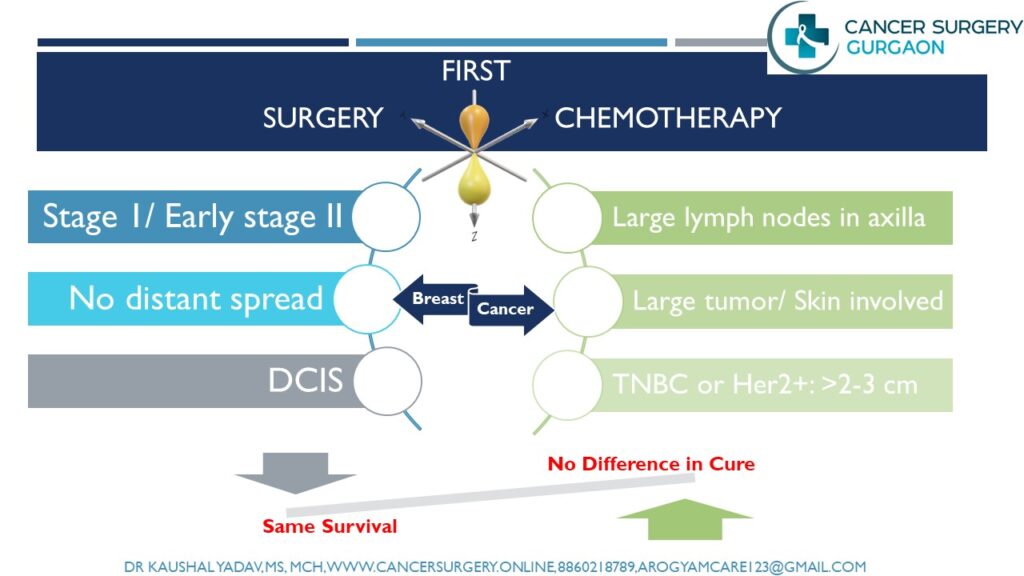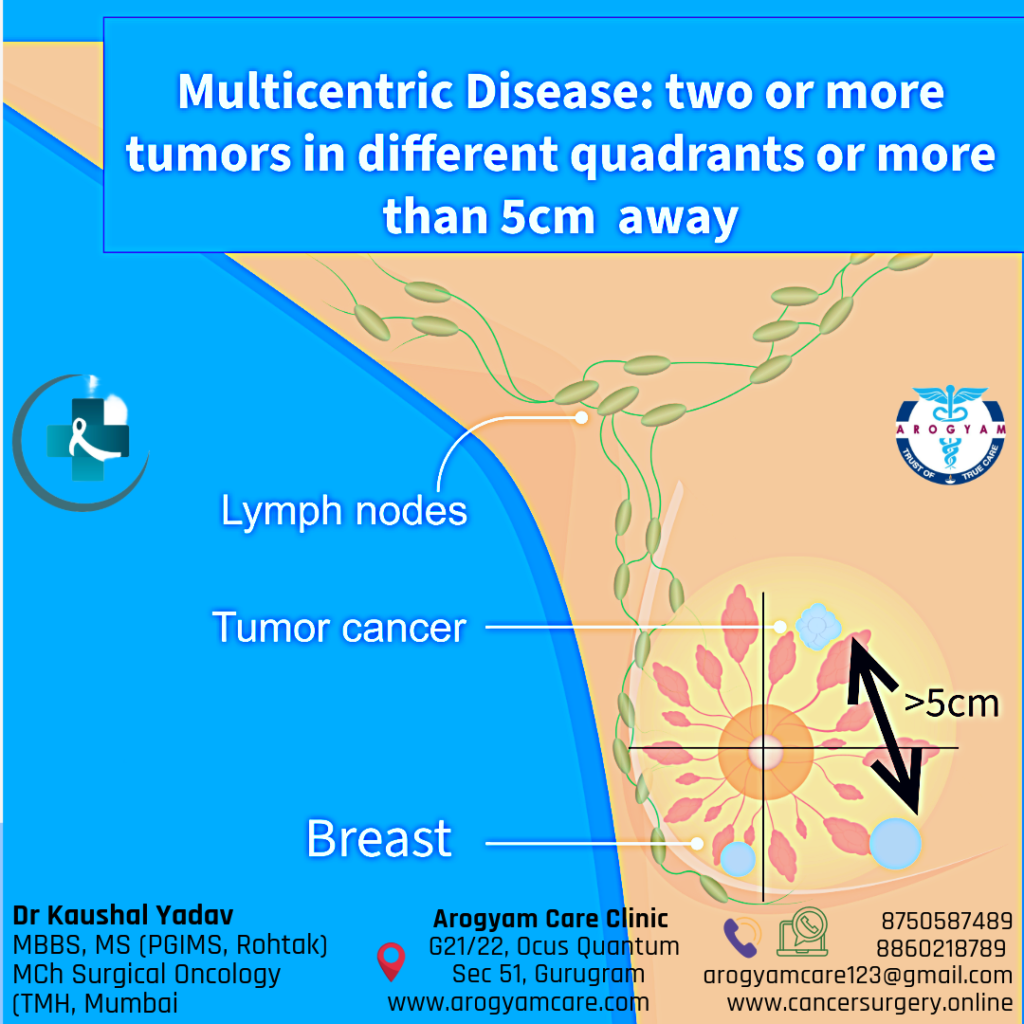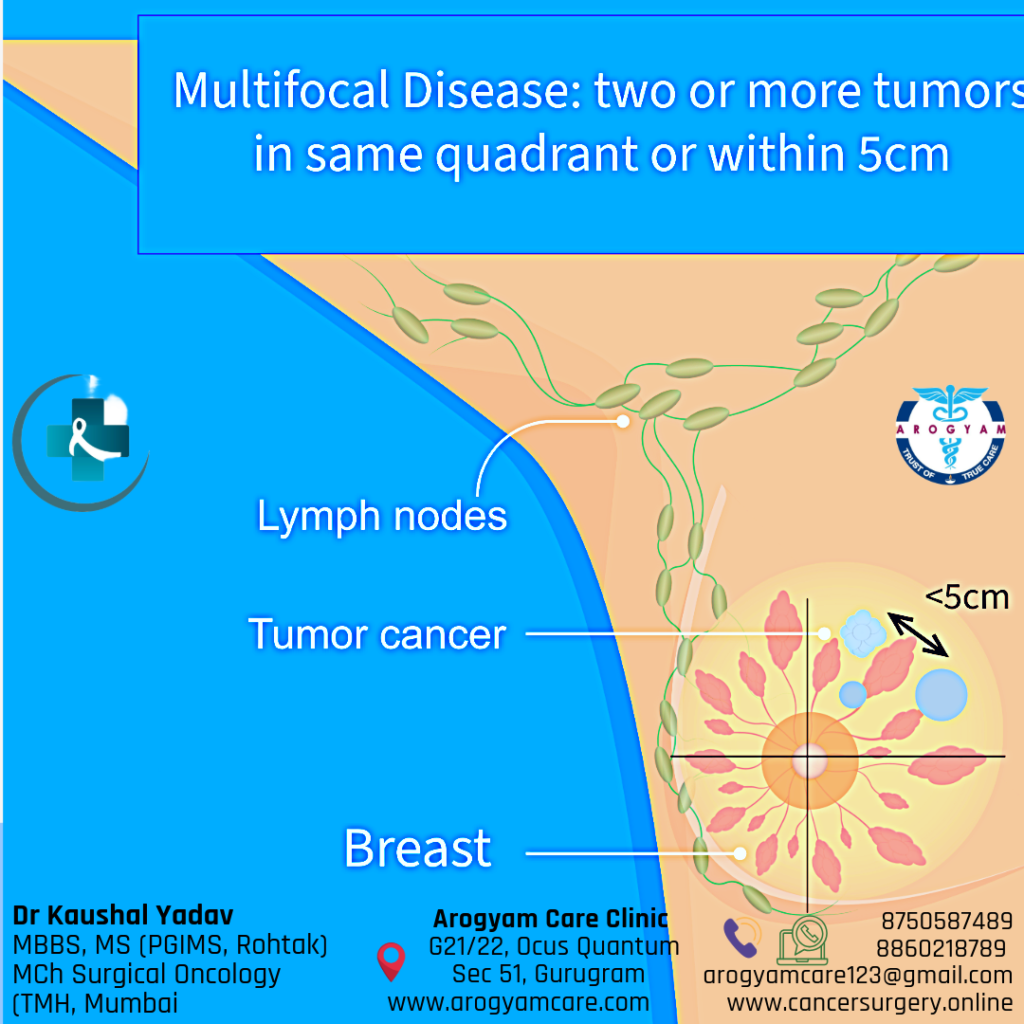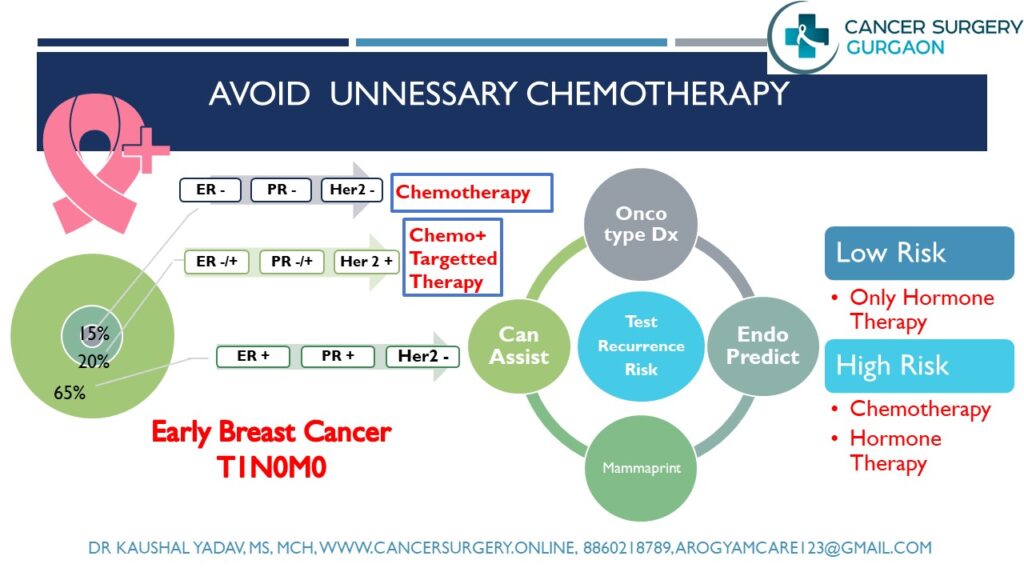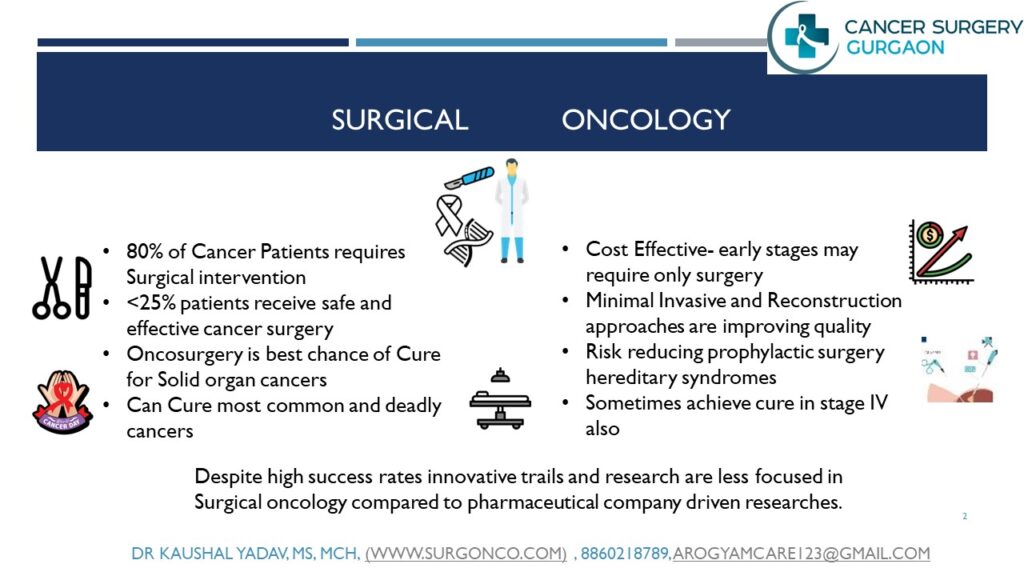While starting treatment for breast cancer, some questions come in mind of every patient and their relatives:
- Is biopsy necessary for breast cancer diagnosis and treatment?
- What are the best investigations for breast cancer diagnosis?
- Surgery should be done first or chemotherapy first?
- Is breast conservation surgery (lumpectomy) less effective than Mastectomy?
- Is it necessary to take chemotherapy in all cases?
- What is the role of radiation therapy in treatment of breast cancer?
- Is it possible to cure breast cancer in stage IV?
In this blog post we’ll try to answer these myths and facts related to breast cancer treatment.
Investigations of breast cancer
When planning treatment for breast cancer, several investigations are crucial to guide decisions. Let’s explore them:
- Breast Exam: A healthcare professional preferably a surgeon should examines the breasts for any abnormalities, changes in skin, or nipple issues. They also check for lumps in the breast tissue and surrounding areas.
- Mammogram: An X-ray of breast tissue to look for site of problem inside the breast and check surrounding tissue and also the opposite breast. So mammography should always be done for both the breast. Mammography is first investigation while evaluation any breast lump to see its nature without any intervention related changes. Mammography is beneficial after age more than 35 years.
- Breast Ultrasound: Uses sound waves to assess breast lumps, distinguishing between solid masses and fluid-filled cysts. Ultrasound is usually done in age younger than 35years and also as complementary to mammography.
- Breast MRI: Creates detailed images of breast tissue, aiding in cancer detection and evaluation of both affected and unaffected breasts. Most commonly done in young patients before surgery, in doubtful cases, when family history is positive or when required by oncologist.
- Biopsy: A sample of breast tissue is removed for lab testing. Most commonly done with an automated gun having a small Caliber needle, called as trucut or gun needle biopsy. Biopsy confirms the presence of cancer, type of cancer, and guide treatment decisions.
- Molecular testing: IHC for hormone receptors (ER/PR), targeted therapy (Her2neu) and aggressiveness (Ki 67). Other markers are done as needed by treated Oncologist
- Blood Tests: Assess overall health and organ function (kidneys, liver).
- Imaging (Bone Scan, CT, PET): Evaluate cancer spread and staging.
Stages of Breast cancer
- Stage 0 (Carcinoma in Situ): Abnormal cells remain within the milk ducts or lobules. these are ductal carcinoma in situ (DCIS) and Lobular carcinoma in situ (LCIS)
- Stage I: Small tumor, no lymph node involvement.
- Stage II: Larger tumor or nearby lymph node spread.
- Stage III: Extensive lymph node involvement or nearby tissue spread.
- Stage IV (Metastatic): Cancer has spread to distant organs.
Remember, early detection is crucial for better outcomes. Early stages have better outcome and less treatment cost. People says that cost of cancer treatment is high but ignore this fact that consulting an Oncologist even with slightest of problem and regular screening is very well in their hands.
Patient Dilemma: Surgery First vs. Chemo First
First up, let’s talk about neoadjuvant therapy. What’s that? Instead of the traditional surgery-first approach, some patients now receive chemotherapy before going under the knife.
- The idea is to shrink the tumor with chemo. Treat the micrometastasis cells which are not visible in any imaging. Plus, it helps doctors assess how well the patient responds to treatment.
- Now a days in Her2 +ve cases targeted therapy is also given along with chemotherapy before surgery.
Now, most important question: Should we do surgery first or chemo first?”
- Traditionally, surgery came first. But recent studies suggest that chemo before surgery have advantage in certain cases. It shrinks the tumor and increases the chances of breast-conserving surgery—keeping your natural breast.
- Remember, it’s not one-size-fits-all. Factors like tumor size, lymph node involvement, and cancer type play a role.
- Candidates for Chemotherapy first approach includes:
Best Surgery for Breast cancer: Breast Conservation or Mastectomy
There are two main types of surgeries for breast cancer: MRM and BCS
- Now, let’s understand preserving breasts. Breast conservation surgery—like lumpectomies—aims to save as much breast tissue as possible.
- Most early-stage cancers allow a choice between the two. Mastectomy and BCS do not have any difference in cure. They have same long-term survival and same recurrence rate
- It is Must to have radiation therapy after BCS while in case of MRM it is decided based on Final biopsy report after surgery
“Ladies, it’s your call. Discuss options with your medical team. Remember, you’re not alone in this journey.”
- There are certain patients who are not suitable for BCS despite early disease-
- Multicentric disease
- Not able to achieve negative margins
- Inflammatory breast cancer
- Unfavourable Breast and tumor ratio where good and symmetrical cosmesis not acheviable
- Contraindication to radiation therapy like in certain inflammatory disease
Family history and genetic BRCA mutation is not an absolute contraindication. BCS and regular MRI surveillance should be offered.
Is it necessary to take chemotherapy in all cases?
Are there some breast cancer cases in which chemotherapy can be avoided? Yes, chemotherapy is not mandatory in all. Stage I breast cancer cases in which cancer is
– smaller than 2 cm
– low grade
– lymph nodes are not positive
– hormone receptors are positive
In these cases, chemotherapy can be avoided to a large extent. In order to reduce the recurrence of breast cancer, some tests are available to determine the need for chemotherapy such as –
– Oncotype Dx,
– Endopredict,
– Mammaprint, and
– IHC based Indian test Can Assist
If the cancer recurrence risk score is low in these tests, then chemotherapy can be avoided if there is a low risk score.
In very favourable cases such as age above 60 years, strongly positive hormone receptors (ER/PR) positive low grade tumor and lymph node negative, chemotherapy can be avoided even without any further tests.
In hormone receptor negative cases, even in cancers smaller than 0.5 cm, the decision to avoid chemotherapy can be taken on an individual basis
What is the role of Radiation therapy ?
- Radiation therapy has very important role in breast cancer treatment and it least recognized treatment modality here.
- After Breast conservation surgery treatment is complete only if radiation therapy is given, After mastectomy in advance stage disease Radiation therapy is required. Its mission is to prevent any cancer cells from developing again.
- Radiation is like a weapon which targeting the tumor bed and nearby lymph nodes. Radition is like it says that cancer cells are not welcome here becase I am here to kill them all.
- Some skin redness and fatigue can occur because of Radiation, but it’s a small price for big gains.
Is it possible to cure Stage IV Breast cancer
The main treatment for stage IV breast cancer is chemotherapy/hormone therapy/ targeted therapy; but there are some cases in which curative surgery can also be done and breast cancer can be completely cured even in stage 4. These are the cases in which breast cancer has spread in some limited organs and the breast and the cancer spread in these organs is called metastasis. Such cases are called as oligometastatic breast cancer. Both of them can be completely removed. This includes surgery for breast cancer and Metastatectomy, RFA or Stereotactic Radiotherapy for metastasis.
To Know more about breast cancer:
Related Video
Discover more from CancerSurgery
Subscribe to get the latest posts sent to your email.

